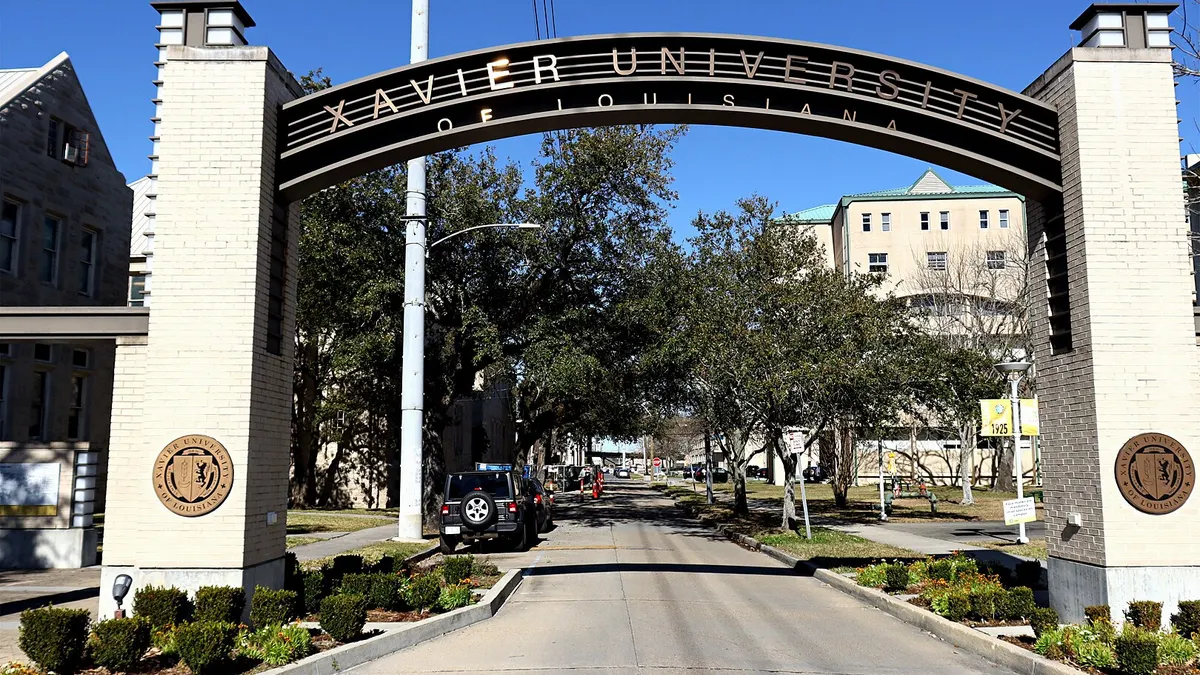Dive Brief:
- How different are learning outcomes from college to college? A new report from Campus Labs, whose software helps colleges track student success initiatives, examines some 8,500 learning outcome statements across 73 two- and four-year institutions to determine key areas of focus at the institutional and program/department levels.
- Institutional outcomes are largely consistent across schools and tend to focus more on higher-order skills such as critical thinking and reasoning, the report found, while department/program outcomes home in on technical skills. At the institution level, technical skills are a higher priority for two-year than for four-year colleges.
- Department/program level outcomes also place more emphasis on personal development and career-specific knowledge than do institutional outcomes. Institutional outcomes put more weight on factors such as communication, culture and human interaction.
Dive Insight:
"We weren't necessarily saying campuses should or shouldn't be radically different from one another," said Shannon Lacount, assistant vice president of campus adoption at Campus Labs and the co-author of the report, in an interview with Education Dive. "People will fight tooth and nail to get into specific institutions. Our question was: Is there a huge difference between what the learning expectations are at various institutions?"
Lacount said she noticed some "anticipated differences" between institutional and program outcomes. For instance, institutional outcomes tend to be bigger and broader while the individual disciplines reflected at the program level have more technical considerations.
Not all outcomes stacked up as expected. For instance, Lacount characterized the fact that programs/departments rate personal development higher than do institutions as "antithetical," especially considering the growth of student affairs divisions on campus and their respective work toward student development, she said.
More broadly, Lacount wrote that there could be "misalignment" between institutions' and programs' expectations, and that a "campus' values may not be displayed in their outcomes as much as they think."
For instance, a relatively low rating for quantitative reasoning by both institutions and programs/departments suggests institutions aren't making clear through their learning outcomes that students are picking up those skills across a range of programs.
"It doesn't mean they're not exposed to (quantitative reasoning)," she said. "But it's not communicated and it's hard to really identify if and when those students have opportunities to practice those skills."
Learning outcomes statements should be a key part of students' college experiences, Lacount contends, and they should explain what knowledge and skills learners will gain during that time.
However, learning outcomes are under scrutiny for their ability to help colleges prove they are helping students at a time when the cost of college is being called into question and alternative credentials offer new options for postsecondary education. Additionally, there have been calls for more accountability and data sharing of student success at the program level.
According to panelists during one session at the annual meeting of accreditor WASC Senior College and University Commission, learning outcomes are "pretty uniformly" not helping colleges help students, Inside Higher Ed reported. One reason is that assessments have largely centered on finding quantifiable proof students are benefiting from their college experience as a way to meet accreditors' requirements, the publication notes.
Recommendations to improve assessments included evaluating goals at the instructor level and intermittently checking in with programs against their goals.
In her report, Lacount notes that "a campus that can internalize the process of assessment and embed it into the daily business of faculty and staff will be far better at avoiding the 'Somebody Else's Problem' mindset that develops at a campus that removes faculty and staff from the process."
The most common assessment was a survey questionnaire — though Lacount cautions against relying on indirect assessments — as well as essays, exams and individual projects, depending on outcome type.









